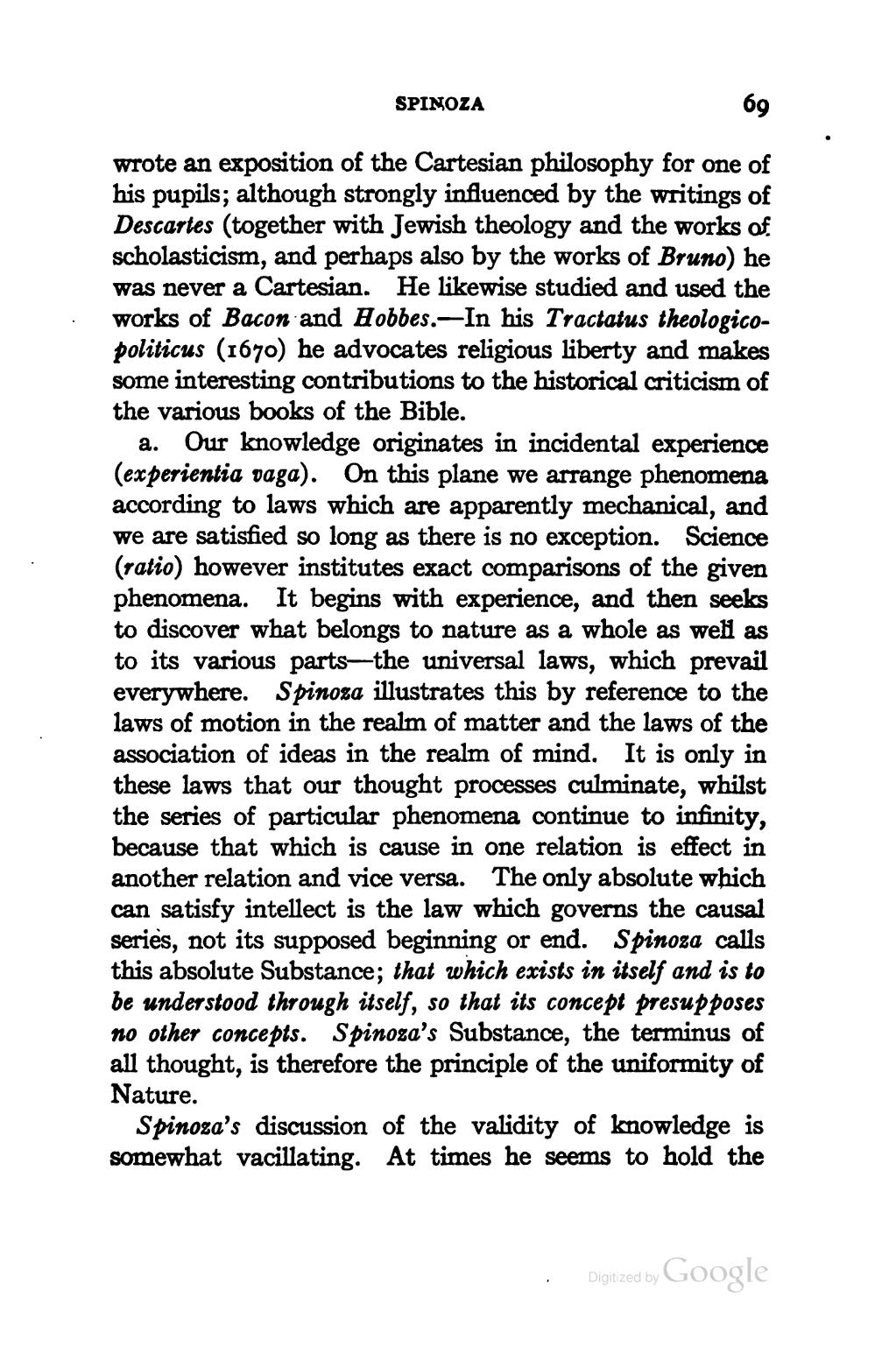wrote an exposition of the Cartesian philosophy for one of his pupils; although strongly influenced by the writings of Descartes (together with Jewish theology and the works of scholasticism, and perhaps also by the works of Bruno) he was never a Cartesian. He likewise studied and used the works of Bacon and Hobbes.—In his Tractatus theologico-politicus (1670) he advocates religious liberty and makes some interesting contributions to the historical criticism of the various books of the Bible.
a. Our knowledge originates in incidental experience (experientia vaga). On this plane we arrange phenomena according to laws which are apparently mechanical, and we are satisfied so long as there is no exception. Science (ratio) however institutes exact comparisons of the given phenomena. It begins with experience, and then seeks to discover what belongs to nature as a whole as well as to its various parts—the universal laws, which prevail everywhere. Spinoza illustrates this by reference to the laws of motion in the realm of matter and the laws of the association of ideas in the realm of mind. It is only in these laws that our thought processes culminate, whilst the series of particular phenomena continue to infinity, because that which is cause in one relation is effect in another relation and vice versa. The only absolute which can satisfy intellect is the law which governs the causal series, not its supposed beginning or end. Spinoza calls this absolute Substance; that which exists in itself and is to be understood through itself, so that its concept presupposes no other concepts. Spinoza’s Substance, the terminus of all thought, is therefore the principle of the uniformity of Nature.
Spinoza’s discussion of the validity of knowledge is somewhat vacillating. At times he seems to hold the

